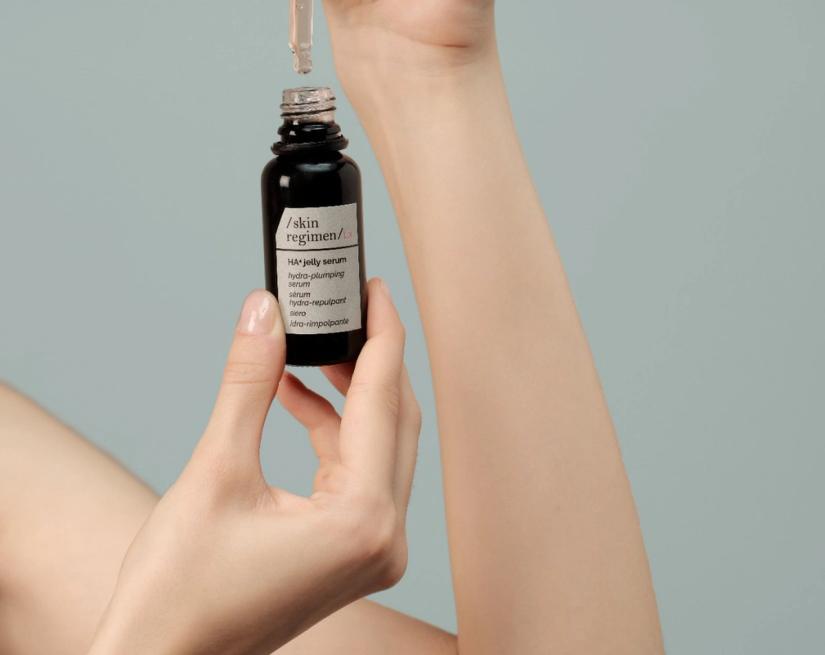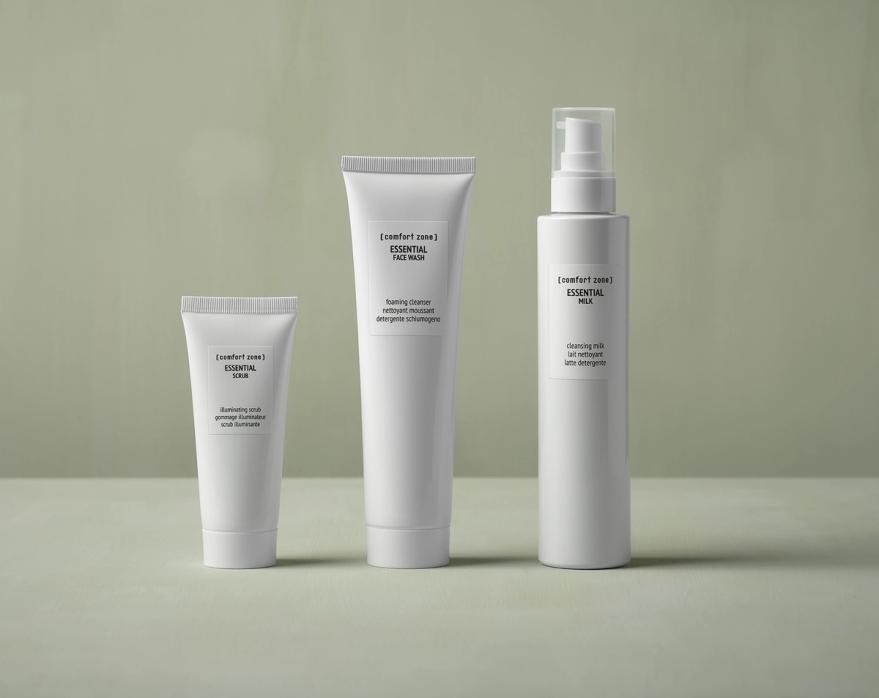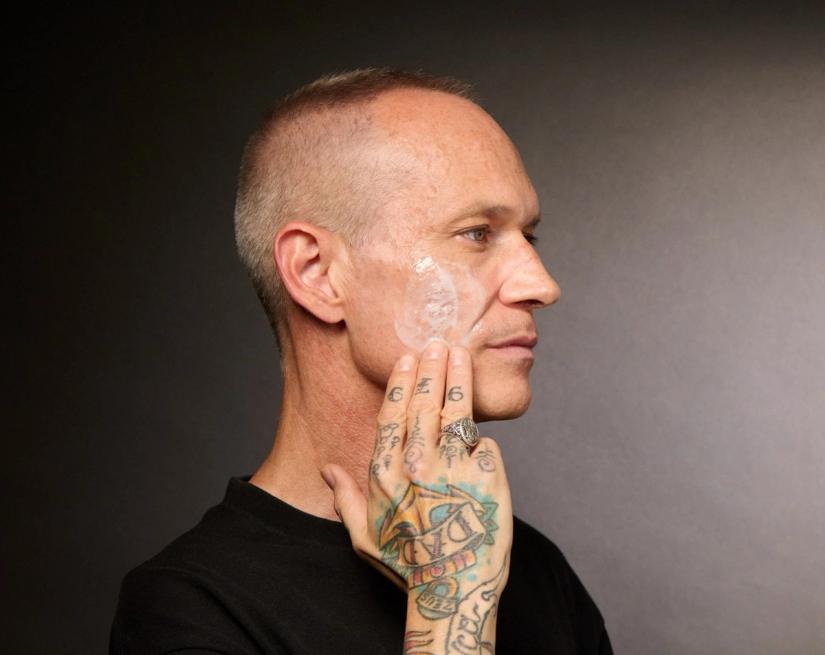skin care
Facial Oils And Serums: Choosing What To Add To Your Skin Care Regimen
Maria Giulia Simonazzi | International Training Manager
10 min read
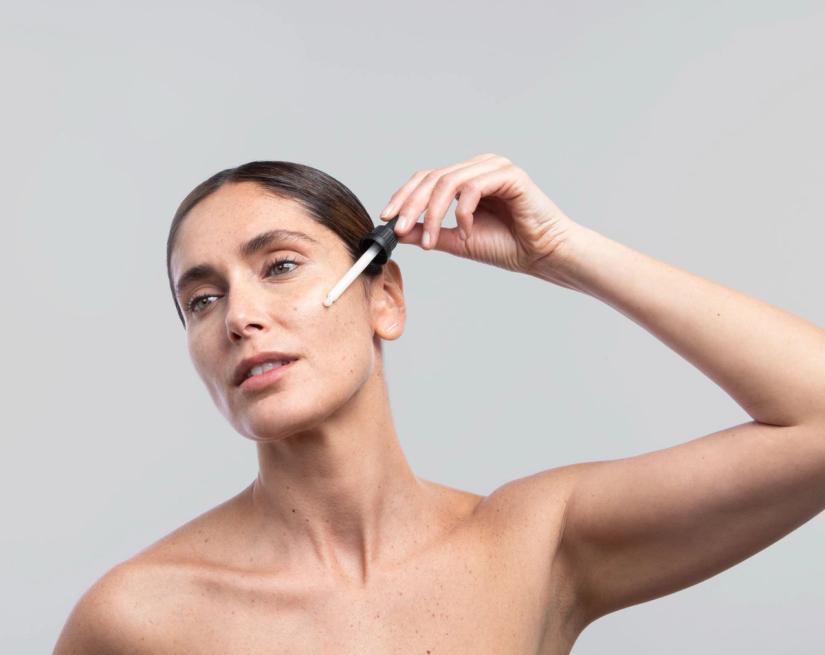
If you're looking to boost the effectiveness of your skin care routine, you may be wondering whether a facial oil or serum will work better to address your skin concerns and produce a radiant glow. While these products might look similar, they're actually quite different. While both facial oils and serums contain potent ingredients that can nourish and repair your skin cells, they differ in more than just their ingredients list.
Face serums and facial oils each have their own advantages, and they can be used separately or layered to work together. The fundamental difference between these types of products lays in the composition of their formulas. Keep reading to learn the difference between oil and serum skin care products and how to choose the best one to make your skin happy.
What Is a Facial Serum?
Serums are essentially a cosmetic product that acts as a supplement for your skin. With lightweight texture and smaller molecular structure—much smaller than those found in oils, moisturizers, and lotions—serum formulas are able to deeply penetrate the skin. This allows them to deposit powerful active ingredients like peptides, antioxidant-rich vitamins, or glycolic acids in the deeper layers of skin for more targeted results. No wonder serums are considered to be a vital step in correcting a wide range of different facial skin issues when added into your daily routine!
Serums help to repair and protect your skin from a variety of concerns, such as aging, hyperpigmentation, and acne. Serums come in an array of different consistencies, from thin and watery to thick and gel-like. These differences in viscosity and formula make certain serums more appropriate for particular skin types or concerns. However, for the most part, everyone can benefit from some type of serum. While people with dry and normal skin types might benefit from using a serum in combination with an anti-aging face moisturizer, people with oily and combination skin types might find that a serum on its own is all they need. Serums contain up to 70% active ingredients, which makes them highly potent and result-oriented (depending on the skin issue that they have been formulated for) without clogging pores.
Is a Facial Serum a Moisturizer?
Some people think serums are moisturizers for facial skin. While serums can be chock-full of moisturizing ingredients like hyaluronic acid or ceramides which help keep skin hydrated, they're not moisturizers in the traditional sense.
The key purpose of a serum is to deliver active ingredients deep within the skin, so most are not formulated to also provide intense hydration (one of the only exceptions would be a serum formulated with hydrating hyaluronic acid). Traditional moisturizers like face lotions and creams are meant to create a barrier on top of the skin to keep all the underlying facial products in. That's why following the application of a lightweight serum with a moisturizer is a vital step, even when using a hydrating serum (remember, skincare products should always be layered from the lightest products to the heaviest products).
How Often Should I Use My Serum?
Frequently of use depends on the serum. Reading the label can help you determine the best frequency, but typically applying a serum once a day is recommended. When applying a serum, less is more. Serums are super potent, and powerful ingredients can irritate sensitive skin. Applying too much can cause flaky skin, inflamed skin, or irritated skin, so be careful before piling it on. A pea-size amount of a serum should be enough for your skin, but you should always patch-test accordingly.
For the most effective results, be mindful of when you use your facial serum. Always apply them on dry, cool skin to optimize absorption. Ideally, they should be applied after washing and toning your face or after you apply your essence if you use one. Lightly tap the serum into your skin; wait until it is absorbed to proceed with the application of a moisturizer.
Thanks to the variety of potent serum boosters available on the market ranging from antioxidant to anti-inflammatory to hydrating and purifying, it's easy to customize your skincare routine.
Facial Serum vs. Essence
Essences are a less-popular skincare product (for now!), so some people may be confused at the difference between serums and essences. Serums and essences are very similar. Essentially, essences and serums are defined based on where they come in the skin routine (for example, after cleansing or before moisturizing) and what function they serve (targeted skincare needs vs. simple hydration). An easy well to tell the difference is because they differ in texture. Serums are gooier and more concentrated, while essences are watered-down with a more fluid-like texture.
What Is a Facial Oil?
Facial oils have taken over the spotlight in recent years, promising to treat different skin conditions and concerns while bringing a gorgeous glow.
Facial oils have a rich, emollient texture that's typically heavier than water-based serums. When applied, they provide a boost of essential nutrients and hydration. Thanks to the essential oils and plant extracts they contain, facial oils provide the skin with lipids which fortify the skin barrier. They are usually composed of one or more oils extracted from fruits, nuts, and seeds. Depending on the type of formula, facial oils may have additional benefits besides nourishing and strengthening the skin barrier, such as anti-inflammatory or antioxidant properties.
How to Choose a Facial Oil
To ensure you get all the benefits of facial oils and none of the side effects, it's important to select the most appropriate one for your skin type. Take jojoba oil as an example: it is known to work well with acne-prone skin because it doesn't clog pores and cause blemishes. While jojoba oil is great for acne-prone skin, someone with extremely dry skin would benefit from choosing a richer, more nourishing oil.
Even though most oils only serve as a source of moisture and hydration, they are just as important as serums in your skincare routine. Increasing the moisture in your skin and providing it with essential oils is fundamental for a healthy, glowing complexion. Because facial oils have a rich texture and heavy molecular weight, they should be applied as the last step of your skincare routine to seal in lighter products.
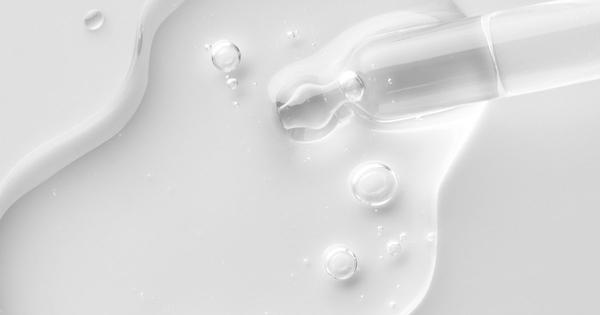
The Difference Between Oil and Serum Products
The key difference between a serum and a facial oil is that oil molecules have a much larger molecular size and can only penetrate the outermost layers of the skin. In fact, an oil blend can contain hundreds of different sized molecules, which makes them more similar to moisturizers rather than serums.
Choosing a Facial Serum vs. a Facial Oil
Both serums and facial oils can serve a purpose in your routine, but ultimately it's all about choosing one that will work for your skin type and help you achieve your skincare goals. If you want brighter, more even skin, you could use a serum like a vitamin C booster to help this potent ingredient deeply penetrate the skin and produce a glowing effect. If you want to deeply moisturize the skin while smoothing out fine lines and wrinkles, you can reach for a hydrating hyaluronic acid serum, or you could add a vitamin face oil to your nighttime routine. Whichever products you choose, keep in mind that you should layer them appropriately from lightest to thickest consistency to ensure your products have a chance to absorb and work effectively.
Choosing The Right Serum or Facial Oil For Your Skin Concern
Depending on your skin type, a particular facial oil or serum may work better for you.
- If your skin is acne-prone, look for a serum or oil containing vitamin C. Vitamin C increases collagen production, enhances the skin's repair process, and reduces inflammation, all while creating brighter skin and providing a youthful glow. Some other ingredients to look out for are retinol (an antioxidant which reduces inflammation), zinc (a mineral which soothes irritation and regulates oil production), and salicylic acid (a potent acid which unclogs pores).
- If you have dry skin, look for a serum or oil containing vitamin E, an antioxidant that protects cells from oxidative damage. Some other key ingredients for treating dry skin are niacinamide, which improves skin elasticity and increases ceramide levels in skin; glycolic acid, which gently exfoliates and lightens discoloration; and hyaluronic acid, which helps your skin retain moisture.
- If you're struggling with dull skin, look for products containing antioxidants like green tea extract, resveratrol, or ferulic acid. These ingredients combat free radicals, increase effectiveness of sunscreen by day, and promote cellular repair and healing by night.
Both Facial Serums and Oils Can Help You Get Healthy Skin
It's easy for face serums and oils to blur together and leave people confused about which products to use and how and when to apply them. When it comes to picking a serum or oil, the decision is based on your skin concerns and personal preference. Pick a serum that targets your immediate skin goals, like reducing dullness, tackling blemishes, or fighting fine lines. A facial oil should be used when you experience extreme dryness due to water loss or when you are in need of additional moisture.
